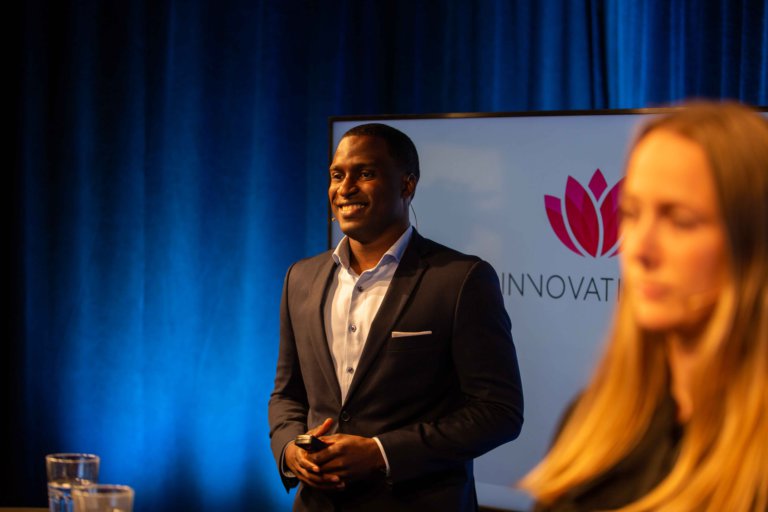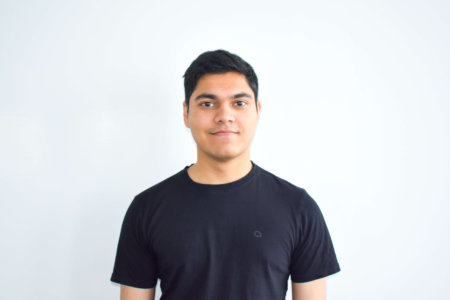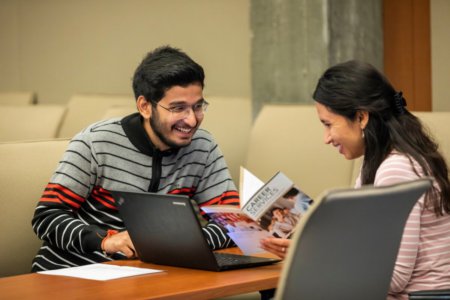
Jarrod Carmichael comes from Trinidad and Tobago, a small twin-island republic in the Caribbean. Postcard-worthy beaches and some of the world’s most beautiful coral reefs dot his home country, but not job opportunities in data science. Scandinavia does, hence why Carmichael is now studying in Norway, pursuing an MSc in Business Analytics at BI Norwegian Business School.
Even though Norway is the polar opposite of his home country, Carmichael appreciates its well-run society and public resources that improve quality of life. Places like Åndalsnes — a beautiful and dramatic landscape of snow-covered peaks surrounding lush green valleys — offer the perfect respite from studying for the huge outdoors fan too. We caught up with him via email to learn more about his experience studying in Norway:
What made you choose to get your MSc in Business Analytics in Norway?
I’m studying in Norway because of the multitude of career paths available to those with skills within the field of data science. Companies are currently sitting on a wealth of data that they should be leveraging to accomplish their goals. Because of this, there is strong market demand for people who can turn data into decisions. Furthermore, I want to ensure my skill set is up to date, as technologies like machine learning become more prevalent.

Jarrod Carmichael left Trinidad and Tobago to pursue an MSc in Business Analytics at BI Norwegian Business School. Source: Jarrod Carmichael
Do you think it would have made a difference if you studied at a local institution rather than studying in Norway?
Yes, most definitely. While studying in Trinidad and Tobago offers a good quality education, the reality is that there are limited opportunities there. Trinidad is a much smaller country with a small population. Thus the number of jobs in the field would be significantly smaller. In Norway, I have access to the Norwegian job market, the Scandinavian job market, and the Western European job market.
Additionally, having spent most of my life in Trinidad, there is no better time to experience new countries and cultures than as a student. I am really enjoying the opportunity of experiencing life on the other side of the deep blue sea.

Jarrod Carmichael is a huge fan of the outdoors. Source: Jarrod Carmichael
What has been your most memorable class so far studying in Norway — and why?
My most memorable class so far has been Predictive Analytics with machine learning. This was the first time I had been formally introduced to machine learning and it has been fascinating. Adding to that, the professor who taught us is very knowledgeable and engaging. He made me get excited about wanting to learn more and I felt that studying in Norway is a fantastic mix of great content and inspired teaching.
Do you have any fond memories with teachers at BI Norwegian Business School that stood out for you?
I don’t have a particular memory, but the professors at my school have always been approachable and willing to help me with questions about a class or if I needed some additional resources.
What are some of the theories you gained in classrooms studying in Norway to the real world?

Lush green valleys with beautiful and dramatic landscapes are some of the perks of studying in Norway. Source: Jarrod Carmichael
The practical learning elements in my course revolve around data science. Whether it be programming in Python, writing queries in SQL, model specification, machine learning or visualisation and presentation of data. There are some aspects of these elements that will come into focus during the internship that is part of the programme. We are also encouraged to work with companies when writing our master thesis and this is what I am currently doing.
My thesis partner and I are using our classroom-acquired skills to solve a business problem for a large bank here in Norway using machine learning. There are many opportunities to apply what one has learned in the real world that came from me studying in Norway.
What are your academic goals in this course?
My main goal is to become proficient in machine learning and combine it with my existing knowledge in finance. Moreover, the utilisation of machine learning and AI is acknowledged in finance which is very exciting. I want to be part of this shift, and future-proof my career. Through coursework, projects, and my own practice, I feel confident that I have enough of a thorough understanding of some of the fundamental aspects of machine learning. This has set me up to dive deeper in specific applications, as needed for work or personal interests.
What do you plan to do with your degree after graduating?

Åndalsnes in Norway is one of Carmichael’s favourite place to enjoy the beautiful outdoors. Source: Jarrod Carmichael
At this point in time, I am eager to get into the workforce and really put my skills to use on cool and engaging projects. My current goal is to find the right environment which will allow me to grow, and that offers the level of variation I need to keep me motivated. I aim to push myself as much as possible, so having a good support system is important to me.
What is one thing you miss from home, and how do you substitute it?
I miss food from home! There is no real substitute for Trinidadian cooking. In an attempt to substitute this, I use my Trinidadian cookbook and a lot of Google searching to find substitute ingredients for some of my favourite dishes. Sometimes I am successful, other times, I have to give up.










